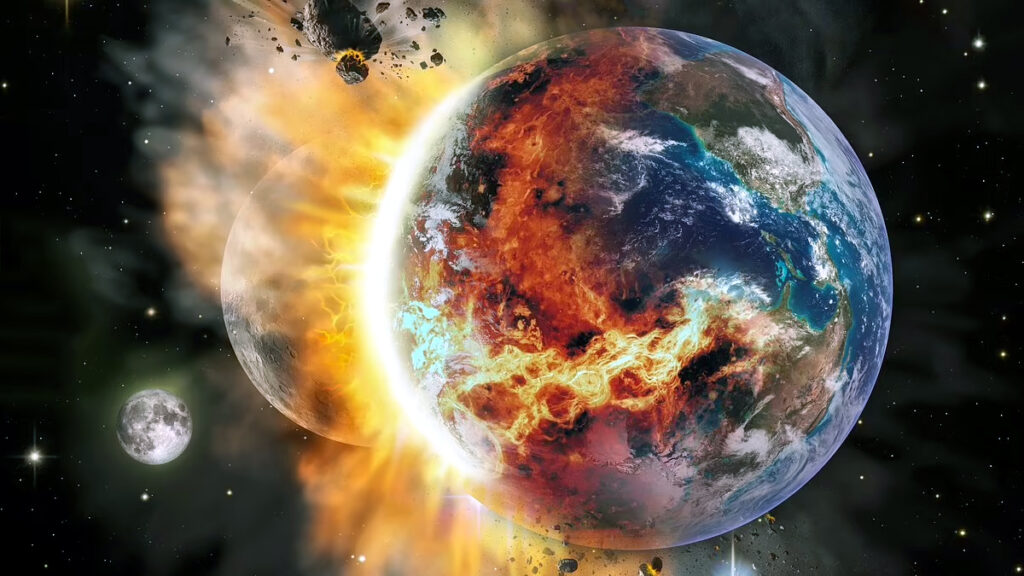Manashimaya

It may sound like a science fiction story, but recent scientific research suggests that Earth could, one day, be knocked out of its orbit—and even ejected from the solar system. The cause? A random star drifting too close to our cosmic neighborhood.
A study published in Icarus has revealed that the future stability of our solar system may be far more fragile than previously believed. Using thousands of detailed computer simulations, scientists found that encounters with passing stars could eventually set off a gravitational chain reaction with dramatic results.
The Hidden Danger of Passing Stars
While we’ve long accepted that the Sun will eventually expand and destroy nearby planets in about five billion years, a more immediate threat could arise from stars traveling near our solar system. These so-called “field stars” are not part of our system but can stray close enough to disturb its delicate gravitational balance.
If one of these stars—roughly the size of our Sun—passes within 10,000 astronomical units (AU), it could jolt the Oort Cloud, a massive sphere of icy objects that surrounds our solar system. But the impact wouldn’t stop there; it could ripple inward and affect the orbits of planets themselves.
How One Stellar Encounter Could Spiral Into Planetary Chaos
Astrophysicists Nathan Kaib and Sean Raymond, who led the research, discovered startling possibilities through their simulations:
Mercury could become 50% to 80% more prone to orbital disruption.
Mars has about a 0.3% risk of either colliding with another planet or being slingshotted out of the solar system.
Earth faces a small but real 0.2% chance of being forced into a deadly collision or ejected into interstellar space.
These gravitational disturbances could trigger a domino effect. For example, a slight tweak in Mercury’s orbit could eventually send Venus or Mars on a collision course with Earth. In another scenario, Earth could be redirected toward Jupiter, whose immense gravity might catapult it into deep space.
What Would Happen If Earth Were Ejected?
If Earth were to be thrown out of its orbit, it would lose its connection to the Sun—the source of all light and heat. Our planet would freeze over, oceans would turn to ice, and life as we know it would vanish. Earth would become a drifting, frozen world in the vast emptiness between stars.
Although the probability of this happening is very low, it paints a sobering picture of how unpredictable our solar system can be over billions of years.
Rewriting Our Understanding of Cosmic Stability
This research challenges long-standing assumptions about how stable our planetary orbits really are. According to Kaib and Raymond, earlier models didn’t account for the full extent of gravitational changes caused by external forces like nearby stars.
Thanks to improved simulations and new data, scientists now realize the solar system isn’t as immune to chaos as once thought. While Earth isn’t in immediate danger, the study opens a new window into how our planetary system might evolve—and what unexpected forces could shape its fate.
